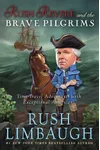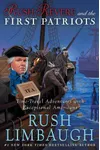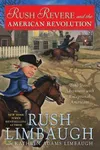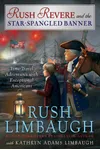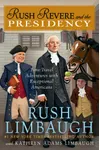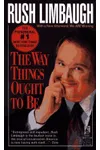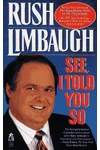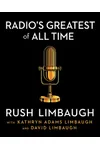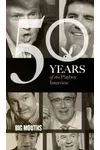Picture a bold voice booming across America’s airwaves, sparking debates and shaping political tides—meet Rush Limbaugh! Born in 1951 in Cape Girardeau, Missouri, Limbaugh transformed from a small-town DJ into the king of conservative talk radio. His provocative, unapologetic style on The Rush Limbaugh Show made him a cultural titan, loved and loathed, but impossible to ignore.
With a career spanning over three decades, Limbaugh didn’t just host a radio show—he built a movement. His blend of humor, conviction, and sharp commentary turned listeners into loyal ‘Dittoheads,’ cementing his legacy as a conservative icon. Let’s dive into the life and impact of this larger-than-life figure!
The Making of Rush Limbaugh
Rush Hudson Limbaugh III grew up in a family of lawyers, but the courtroom wasn’t his calling. As a teen, he was glued to the radio, spinning records and dreaming of the mic. After dropping out of college, Limbaugh bounced between stations, honing his craft in places like Pittsburgh and Kansas City. By the 1980s, his big break came when he landed a gig in Sacramento, where his outspoken conservative views began to shine.
His relentless drive and knack for connecting with everyday Americans caught the attention of national syndicators. In 1988, The Rush Limbaugh Show launched from New York City, and the rest is history. Limbaugh’s early struggles gave him grit, and his small-town roots kept him relatable, even as his fame soared.
Rush Limbaugh’s Unforgettable Voice
Limbaugh’s primary ‘work’ was The Rush Limbaugh Show, a three-hour daily juggernaut that ran from 1988 until his passing in 2021. Broadcast on over 600 stations, it reached millions with its mix of political commentary, satire, and Limbaugh’s signature bravado. He tackled issues like taxes, government overreach, and cultural shifts, always with a conservative lens and a touch of humor.
Beyond radio, Limbaugh authored books like The Way Things Ought to Be (1992) and See, I Told You So (1993), both bestsellers that distilled his radio rants into print. His style was direct, often polarizing, blending sharp wit with unyielding principles. He pioneered ‘talk radio’ as a cultural force, making complex issues accessible and entertaining.
Limbaugh also dabbled in television, hosting The Rush Limbaugh Show (1992–1996) and appearing as a commentator on networks like Fox News. His media empire extended to newsletters and even a line of patriotic ties, but his voice—confident, irreverent, and commanding—remained his greatest asset.
Why Rush Limbaugh Matters
Rush Limbaugh didn’t just speak to conservatives—he shaped the movement. His show gave a platform to ideas that resonated with millions, influencing Republican politics and paving the way for figures like Sean Hannity and Glenn Beck. He was a kingmaker in the GOP, with politicians clamoring for his endorsement.
Yet, his legacy is complex. Critics called him divisive, pointing to his controversial remarks on race, gender, and social issues. Supporters hailed him as a truth-teller, unafraid to challenge the establishment. Love him or not, Limbaugh redefined political discourse, proving one voice could sway a nation. His 2020 Presidential Medal of Freedom underscored his impact, even as debates about his influence rage on.
- Born: January 12, 1951, Cape Girardeau, Missouri
- Key Work: The Rush Limbaugh Show (1988–2021)
- Books: The Way Things Ought to Be, See, I Told You So
- Award: Presidential Medal of Freedom (2020)
Ready to explore Limbaugh’s world? Tune into archived episodes of The Rush Limbaugh Show or grab The Way Things Ought to Be for a dose of his bold, conservative vision!
